Design Magazine talks to Marsia Taha, the pioneering head chef of Gustu in La Paz, an astonishing fine dining restaurant serving ancestral native foods in avant-garde contemporary style. Latin America’s rising culinary star has put Bolivia on the world gastronomic map, and traditional local ingredients back on Bolivians’ tables, while supporting local communities and productions.
Standing at nearly 4.000 mt above sea level, La Paz is the highest capital of the world, but also home to one of the pinnacles of Bolivian, and indeed the world’s contemporary cuisine: Gustu, a fine dining establishment utilising the most astonishing and long lost produce from the nearby Andes and the Amazon rainforest. Founded by Danish entrepreneur Claus Meyer, co-owner of Legendary Noma in Copenhagen, Gustu owes its embracing the local tradition to its young female head chef, Marsia Taha.
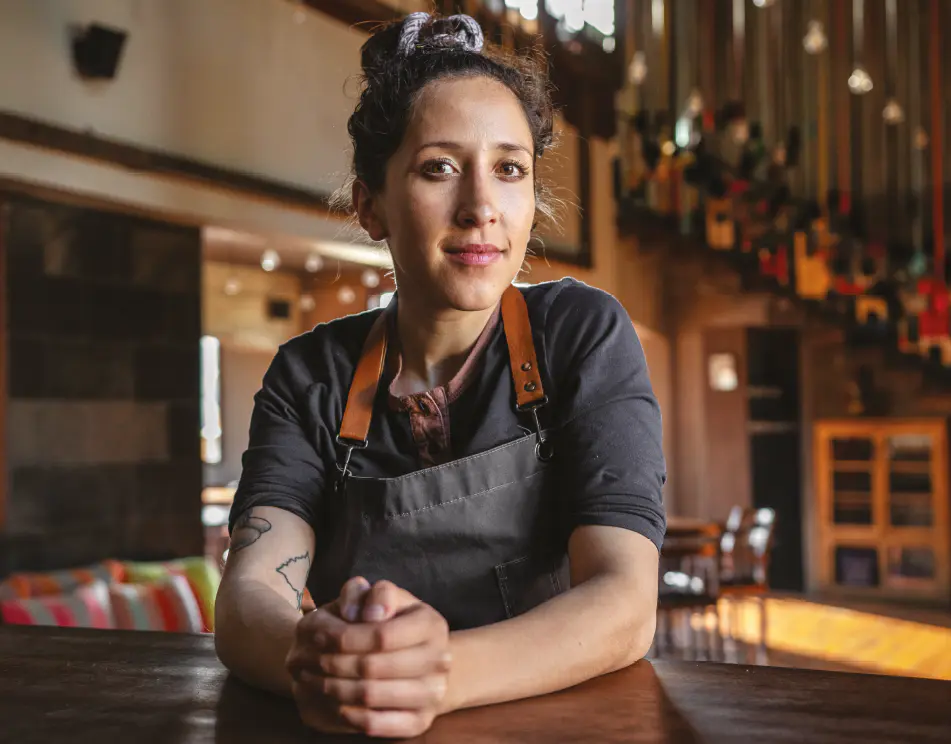
When I started at Gustu, it was my first experience in such an establishment. The head chef was Danish, and I felt the need to spend some time working in Denmark to better understand the workings of a fine dining restaurant. I was amazed by how the Danes were able to make the absolute best out of the few resources they had, and I started dreaming about what we could achieve here by applying this Nordic approach to the incredible diversity of Bolivia’s traditional produce.
“From a culinary standpoint, Latin America is a sleeping giant who has only just woken up. We have so much to give to world gastronomy”When I returned as a head chef, I started researching local ingredients, and my cuisine gained a decidedly more Bolivian perspective and inspiration. Today at Gustu, we use native products, in many cases of prehispanic origins, like alligator, certain varieties of potatoes and algae caviar, that we source from local communities which we help become economically self-sufficient. In the beginning it was a bit tough, it took some time to sink in with our clientele. Patrons were mostly foreigners, then Bolivians started to discover their own heritage and native foods and appreciate what we do at Gustu. They are taking pride in their culinary roots. I believe it had an impact on Bolivian society, raising awareness about the richness and the cultural value of traditional products, now widely available in markets across the country
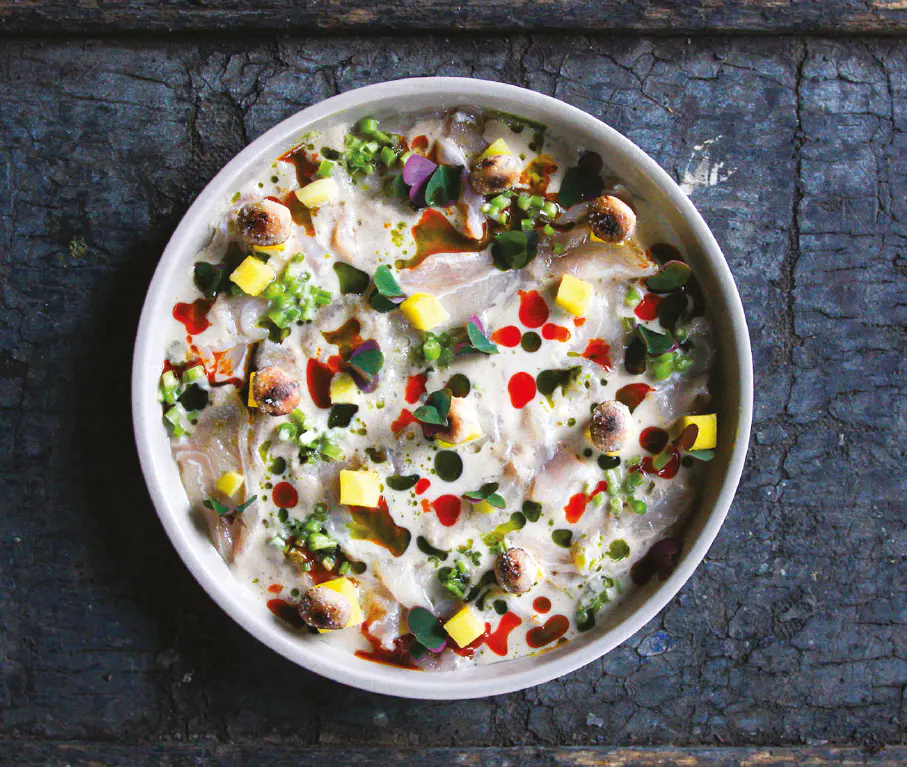
Raw white caiman, Incapeanut & achiote seeds
What sparked your interest in social projects?
I guess our attention to social issues and our urge to teach are just part of our DNA at Gustu. I became involved in supporting the local communities working with disadvantaged kids in La Paz through the Manq’a culinary school. We started at the restaurant, and soon the school grew out of it. Today we have several sites in Bolivia and also in Colombia. The organisation is completely self sufficient and produces its own food, all native.
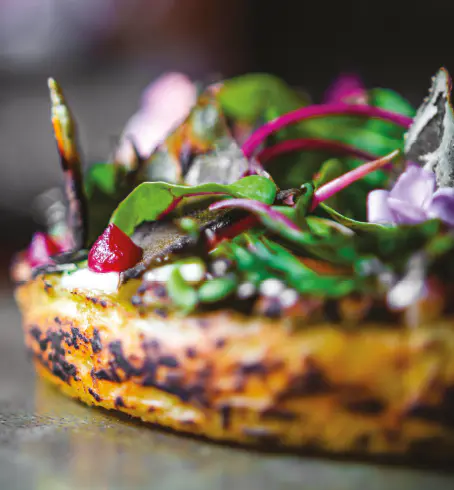
Sonso de Yuca & Huerta
Cassava patty & greenleaves
You also developed your own scientific-gastronomic project...
In 2017, despite our efforts, it seemed that we weren’t making much progress in sourcing new products, yet in my opinion we hadn’t even discovered half the traditional ingredients that were still out there. We founded Sabores Silvestres, “flavours of the wild”, to better explore the trove of extraordinary and hidden produce still farmed and produced by remote communities. We also learn about ancient traditions and techniques. Sabores Silvestres is formed by a multidisciplinary team of cooks, botanists, ethnologists. We work in collaboration with the Wildlife Conservation Society that also helps these communities sustain themselves through these ancestral activities.
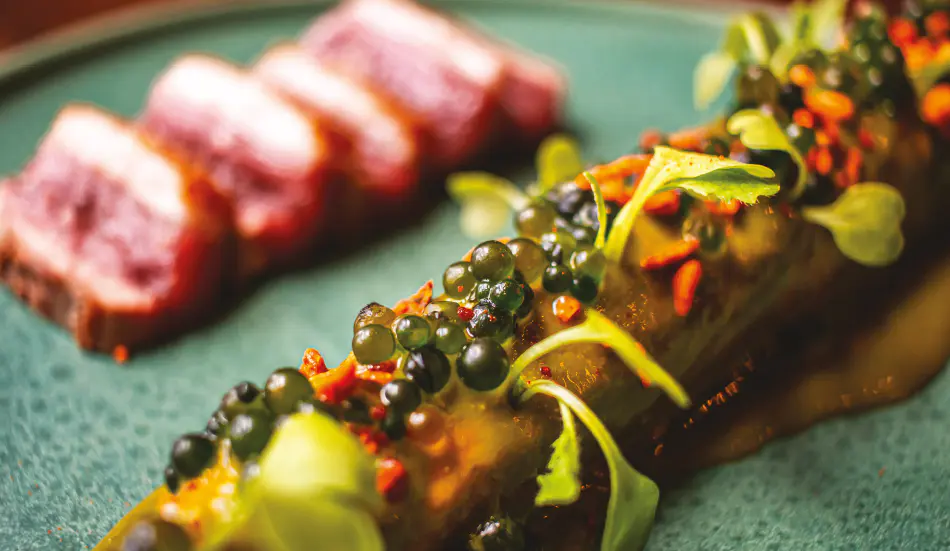
How do you reconcile haute cuisine’s creativity and innovation, with tradition?
We go a long way in researching and supporting native produce, traditions and techniques, but we believe that what really counts is to keep the flavours alive, and that’s precisely our intent here at Gustu. Also, we offer exclusivity in the way we treat and respect ingredients, but we’d like everybody to enjoy what we do. Fine dining is generally associated with high prices, but that’s a common misconception, it doesn’t need to be expensive, and we make a point of having reasonably priced menus, with a three-course tasting menu starting at €18.
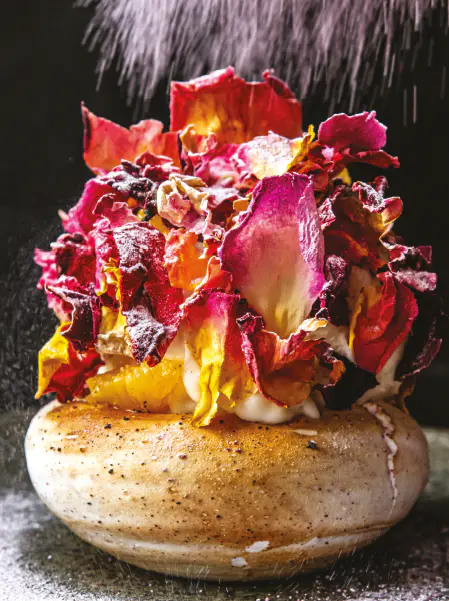
Chirimoya icecream, meringue & dried flowers
When not cooking, Marsia loves to indulge typical Bolivian street food, one of her favourites being wallake, a native soup made with tiny qarachi fish from lake Titicaca, the highest navigable lake in the world, where earth, tradition and the living meet the sky.
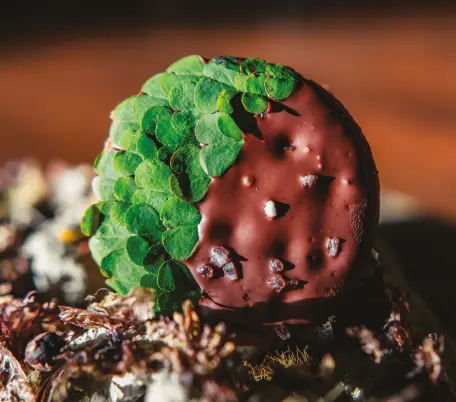
Marsia Taha Mohamed, 33, is the head chef of Gustu in La Paz, Bolivia, one of Latin America’s most acclaimed restaurants. Born in Sofia, Bulgaria to a Bolivian mother and a Palestinian father, she moved to Bolivia when she was five. After her culinary studies in Europe, in particular in Spain, she moved back to La Paz before spending some time in Denmark where she discovered the world of avant-garde fine dining at its highest level. She applied the Nordic approach to Bolivian ancestral produce to create Gustu’s unique proposition. It was a planetary success. She was featured in many documentaries and TV stories as well as in magazines all around the world. She won the 2021 Latin America Best Rising Star Female Chef award by Latin America’s 50 Best Restaurants.

.jpg?VGhlIFBlcmZlY3QgU2xvdC1pbijmraPnoa4pLmpwZw==)












.jpg?MTkyMHg3MjDvvIhkZXPvvIkuanBn)
.jpg?MTAyNHg3NDDvvIhkZXPvvIkuanBn)



















